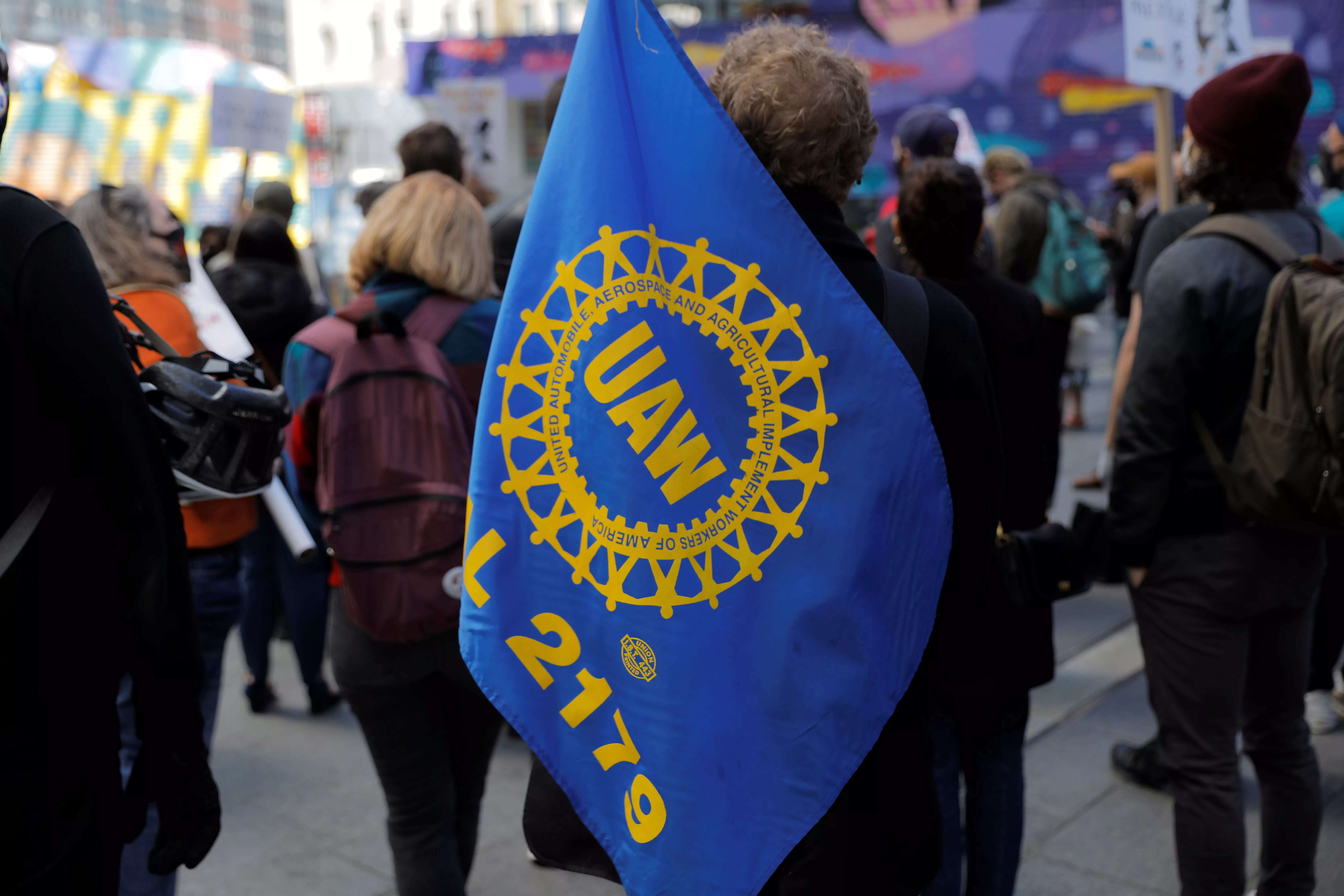
Stellantis is reporting progress in talks with the United Auto Workers union with just three days left before contracts expire with Detroit’s three automakers.
Tobin Williams, head of human resources for North America, told employees in an email that the union made counteroffer to its economic proposal on Sunday.
Stellantis released no details of its offer Monday.
He also says both sides have reached agreement in a number of areas including health and safety.
“There was good energy among both teams and great momentum to reach an agreement as we head into the final days before the contract expires Thursday night,” Williams wrote. “We are on a good path”.
UAW President Shawn Fain on Friday called counter offers from Stellantis, General Motors and Ford inadequate. He warned of strikes against any company without a tentative contract agreement when the contracts expire at 11:59 p.m. Thursday.
On Friday, Stellantis, which was formed in a 2021 merger of Fiat Chrysler and France’s PSA Peugeot, made its first counteroffer to the union’s demands with a bigger pay raise than offers from Ford and General Motors. Stellantis offered wage increases in each year of a new four-year contract totaling 14.5%.
Last week Ford increased its offer from 9%, to 10% raises over four years, but it also included lump sum payments, while GM’s offered 10% plus lump sums. All three companies offered additional lump sum payments to cover inflation.
The proposal from Stellantis, which was formed in a 2021 merger of Fiat Chrysler and France’s PSA Peugeot, is closer to the union’s demands of 46% across-the-board increases over four years, but both sides still are far apart.
Fain said Friday that he threw the offers into the trash. “Things are moving but they’re moving very slow and we’ve got a long way to go in four days,” Fain said on a Sunday night video event.
The union has asked for 46% raises in general pay over four years – an increase that would elevate a top-scale assembly plant worker from USD 32 an hour now to about USD 47. In addition, the UAW has demanded an end to varying tiers of wages for factory jobs; a 32-hour week with 40 hours of pay; the restoration of traditional defined-benefit pensions for new hires who now receive only 401(k)-style retirement plans; and a return of cost-of-living pay raises, among other benefits.
Perhaps most important to the union is that it be allowed to represent workers at 10 electric vehicle battery factories, most of which are being built by joint ventures between automakers and South Korean battery makers. The union wants those plants to receive top UAW wages. In part, that is because workers who now make components for internal combustion engines will need a place to work as the auto industry increasingly transitions to EVs.

